Britain's top animal disease scientists have launched a devastating attack on the government's "mindless" badger cull, accusing ministers of failing to tell the truth and demanding the immediate abandonment of the killings.
The intervention by dozens of the nation's most senior experts, in a letter in the Observer, comes as farmers prepare to begin the cull in Gloucestershire and Somerset, possibly as early as tomorrow. The government's own chief scientist has refused to back the killings.
More than 30 eminent animal disease experts describe the cull as a "costly distraction" that risks making the problem of tuberculosis in cattle worse and that will cost far more than it saves.
TB in English cattle is an increasing problem, with the 26,000 infected animals slaughtered in 2011 costing £90m in compensation. Owen Paterson, the environment secretary, argues that more than a decade of research shows that culling badgers, which can carry bovine TB, could reduce infections by 12%-16% if undertaken intensively for many years and over large areas.
However, the scientists reject the idea of scientific support for the cull, which could wipe out 100,000 badgers, a third of the national population. The cull policy is "mindless", according to Lord John Krebs, one of the UK's most eminent scientists and the architect of the landmark 10-year culling trials that ended in 2007. "The scientific case is as clear as it can be: this cull is not the answer to TB in cattle. The government is cherry-picking bits of data to support its case."
Another signatory, Lord Robert May, a former government chief scientist and president of the Royal Society, said: "It is very clear to me that the government's policy does not make sense." He added: "I have no sympathy with the decision. They are transmuting evidence-based policy into policy-based evidence."
The current government chief scientist, Professor Sir John Beddington, refused to back the cull. Asked if it could make a meaningful contribution to tackling TB in cattle, he said: "I continue to engage with Defra [the Department for Environment, Food and Rural Affairs] on the evidence base concerning the development of bovine TB policy. I am content that the evidence base, including uncertainties and evidence gaps, has been communicated effectively to ministers."
A Defra spokesman said: "The leading experts Defra brought together in April 2011 agreed that the evidence shows that culling done in the right way can reduce the spread of the disease to cattle, with benefits remaining for many years. The culling policy has been developed to maximise the benefits shown in previous trials, and to minimise the impact of badgers spreading disease beyond the cull area by including hard boundaries such as motorways and rivers."
But scientists say the two-page document produced by the April meeting does not support the cull. Professor Rosie Woodroffe, of the Zoological Society of London, said: "The document simply does not endorse the policy."
The cull has provoked the largest animal rights campaign since fox hunting in the 1990s, with some activists pledging to disrupt the nocturnal shootings by marksmen. More than 150,000 people have signed a government e-petition to stop the cull, entitling it to be considered for a debate in parliament. MPs say they are confident this will be granted when the decision is made on Tuesday.
The scientists, whose letter is also being sent to Paterson, claim scientific opinion in the UK is overwhelmingly against the cull. "I just don't know anyone who is really informed who thinks this is a good idea," said Professor John Bourne, who led the decade-long trial.
The scientists reject other statements from ministers and even David Cameron, who said last week: "I believe this is the right policy for healthy badgers as well as healthy cattle."
Woodroffe pointed to research showing that just 14% of badgers in previous culls had TB and just one in a hundred had severe symptoms. "Furthermore, all the evidence shows that culling badgers increases the proportion of badgers that have TB," she said.
In a separate development, nine leading vets have written an open letter, co-ordinated by Humane Society International/UK, to Defra and Natural England. They warn that the shooting permitted by the cull licences "will inevitably result in the targeting of many pregnant sows and, if culling extends towards the end of the open season, could result in the shooting of lactating sows, leading to the starvation of dependent cubs".
Naturalist and broadcaster Bill Oddie said: "I cannot believe they are going to be able to go out in pitch darkness – badgers are nocturnal – and shoot them. It is truly a horrific situation."
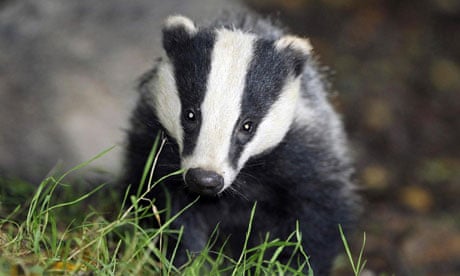

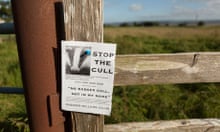

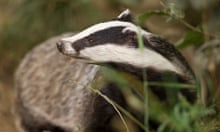
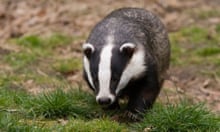

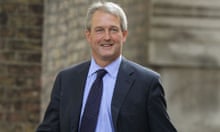

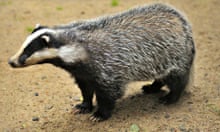
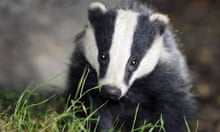
Comments (…)
Sign in or create your Guardian account to join the discussion